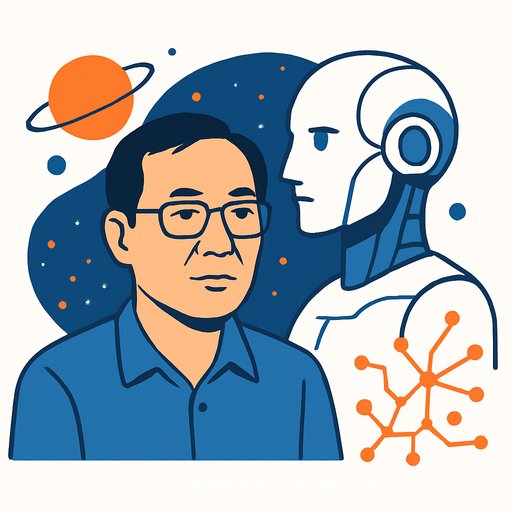I Sued Anthropic, and the Unthinkable Happened
I was alone in a studio apartment when a headline changed everything. A searchable database showed several of my books inside a training set for large language models. Years of work, vacuumed into a dataset in seconds. That shock turned into action.
In 2024, I became a named plaintiff in a class action against Anthropic for using books without permission to train an A.I. model. The odds felt lopsided: a working writer versus a company valued at a staggering sum. What followed wasn't just legal filings. It was a wake-up call for every writer running a creative business in an A.I.-driven market.
What I Learned (Fast)
- Our books are treated like raw material by companies scraping the internet and shadow libraries.
- Whether that's legal is contested. Fair use isn't a blank check; it's a test that depends on facts and context.
- Documentation is your friend. If you find your work in datasets or model outputs, record everything.
- Collective action matters. Solo complaints get ignored; organized efforts get traction.
First Moves if You Suspect Your Work Was Used
- Search for your titles in public discussions of training sets (e.g., "Books3"). If you find evidence, take screenshots with URLs and timestamps.
- Set Google Alerts for "Your Book Title + PDF" and your name. Add variants and foreign-language searches.
- Register your works with the U.S. Copyright Office if you haven't already. It strengthens your position if litigation is necessary. See the Copyright Office's AI resource.
- Keep a clean archive of drafts and publication dates. Provenance helps.
How to Document Potential Misuse
- Prompt the model with distinctive, non-public phrases from your work. Save the prompts and outputs.
- Export chat logs as PDFs and keep local copies. Cloud links disappear.
- Record model name and version, date, and any system notices visible in the app.
- Don't publish all evidence online. Share only what's necessary and keep the originals intact.
Protect Your Website and Distribution Channels
This won't solve everything, but it raises friction and clarifies your intent.
- Block known AI crawlers in robots.txt. Examples: GPTBot, ClaudeBot, CCBot, PerplexityBot, and others published by vendors.
- Add human-readable terms: "No training use without a written license." Put it in your footer and on a dedicated rights page.
- Watermark free excerpts. For PDFs, add a visible footer with your site, date, and "No training use."
- Distribute only short excerpts on public pages. Gate long-form content behind email or paid access.
DMCA and Takedowns (Quick Basics)
- Find specific URLs hosting your pirated files and send takedown notices to the host and search engines. Keep receipts and responses.
- If a platform has a formal copyright process, use it. Be factual and precise.
- Track repeat offenders in a simple spreadsheet: URL, host, date, action taken, result.
Legal Pathways (No Legal Advice)
- Join collective efforts and professional organizations that coordinate action and share templates. The Authors Guild offers updates and guidance.
- If you have clear evidence of misuse, consult an attorney experienced in copyright and AI.
- Be careful with public statements. Stick to facts you can document.
Licensing: Make Your Terms Explicit
- Create a rights page that spells out commercial and research licenses for your text. If someone wants to use your work, make it easy to ask and pay.
- Offer limited-use licenses for quoting beyond fair use, dataset inclusion, classroom packs, and audiobook clips.
- List an agent or email specifically for rights requests. Speed converts interest into contracts.
Business Moves for Writers Right Now
- Own distribution. Sell direct with signed editions, bonus chapters, and community access.
- Grow email, not just social. Platforms shift; your list is stable.
- Publish shorter work between books: newsletters, essays, serialized fiction. Stay top of mind.
- Track reader data you control: open rates, click stats, sell-through. Improve with small, weekly experiments.
- Collaborate with other authors on bundles and cross-promotions. Share audiences, share wins.
Working With AI On Your Terms
Use tools that respect your boundaries and keep your drafts local when possible. Treat AI as an assistant for outlines, research organization, and line-level suggestions-not a ghostwriter. Keep your voice intact.
- Create a "sources only" policy for AI research: demand citations and verify them.
- Maintain a changelog for drafts that includes what tools were used and how. It protects your process and credibility.
If Your Writing Appears In Model Outputs
- Compare passages side by side. Highlight identical or near-identical language.
- Collect multiple examples across dates and versions if possible.
- Speak with counsel before contacting a vendor. You'll want a clear request and an evidence packet.
- Consider joining an existing action rather than going solo.
What "The Unthinkable" Was
I expected silence. Instead, thousands of writers spoke up. The message was simple: we create value, and consent still matters. That clarity changed how I run my career-more assertive with rights, sharper with systems, louder with boundaries.
A Closing Note to Working Writers
Your work is your asset. Treat it like a business: protect it, price it, and promote it. Technology will keep shifting; your leverage comes from clear terms, a direct relationship with readers, and a consistent body of work.
If you want structured ways to level up your workflow with ethical, practical tools, see courses by job categories at Complete AI Training.
Your membership also unlocks:






